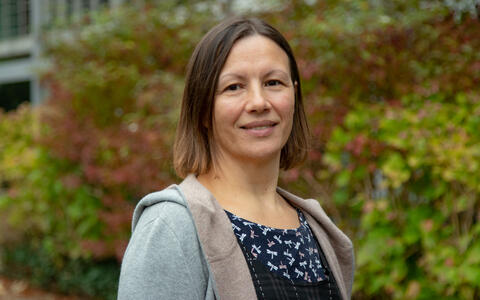What are you reading, Dr. Seumenicht?
Since February 24th 2022 I hardly took a book to my hands, I have to admit. My homeland is in flames, my relatives, as 14 million of other Ukrainians (a third of the country’s pre-war population) had to flee, and the brutality of this war became a new reality of our lives.
In “normal” times, i.e. before the war, I was rarely reading only one book at a time. So right now, I am somewhere in the middle of “Lemberg: Die vergessene Mitte Europas” by Lutz C. Kleveman and “The science of meditation” by Daniel Golemann & Richard J. Davidson. I would strongly recommend both. The last book I have finished reading was “The Red Prince: The Fall of a Dynasty and the Rise of Modern Europe” by Timothy Snyder. He is a Yale historian specializing in the modern history of Central and Eastern Europe. I consider his book “Bloodlands: Europe Between Hitler and Stalin” a must read for anybody trying to understand better what is going on in this part of Europe right now.
Oksana Seumenicht
“The Red Prince” is a literary monument of an extraordinary personality, the Habsburg archduke Wilhelm (1895-1948). At the same time, through the story of life of this eccentric and brave man, the book describes the times and events leading to a dramatic change of world order, when empires ruling Europe disintegrated (sadly not all), and the modern Europe of national states as we now know it was born.
Born as an archduke of Austria, Wilhelm von Habsburg chose to be known as Vasyl Vyshyvanyi (Ukrainian: Василь Вишиваний). The name derives from ‘vyshyvanka’. That is a festive embroidered shirt, which has a close to sacred meaning for Ukrainians and can be considered as an identity-marker. How comes that a Habsburg archduke spoke Ukrainian, became a colonel of the Ukrainian Sich Riflemen (a Ukrainian unit within the Austro-Hungarian Army during the WWI), and a Ukrainian poet? How much must the Soviet Union have been afraid of the unwavering desire of Ukraine to be an independent country, that in 1947 the Soviet security services considered it necessary to arrest the archduke in Vienna, interrogate him, bring him to Kyiv, and charge him for preparing to become the hetman (ruler) of Ukraine during WW I? Wilhelm died in Kyiv prison remaining true to his “Ukrainian dreams”.
I like Timothy Snyder’s talent for story-telling and his style. It is quite analytical (so one learns a lot – for me it was the history of Balkans and other peoples of the former Austro-Hungarian empire that was greatly enlightening), but it is not your dry history book. It is as much about historical facts as it is about a very passionate, sometimes troubled, personality and the quest for one’s identity and life purpose. Snyder discusses the attempt to reinstate the Austro-Hungarian empire as a sort of a predecessor of the European Union. This was a state, where different nations were acknowledged and able develop their culture and were represented politically. The other (larger) part of Ukraine had sadly no such luck, being overrun by the Russian empire, which – as we also see today – denies its very right to exist.
For me this book is foremost about the choices we make, the responsibility we (have to) take or the price we pay. And about identity as something we could choose and are not just born with.
Timothy Snyder: "The Red Prince: The Fall of a Dynasty and the Rise of Modern Europe", Vintage





